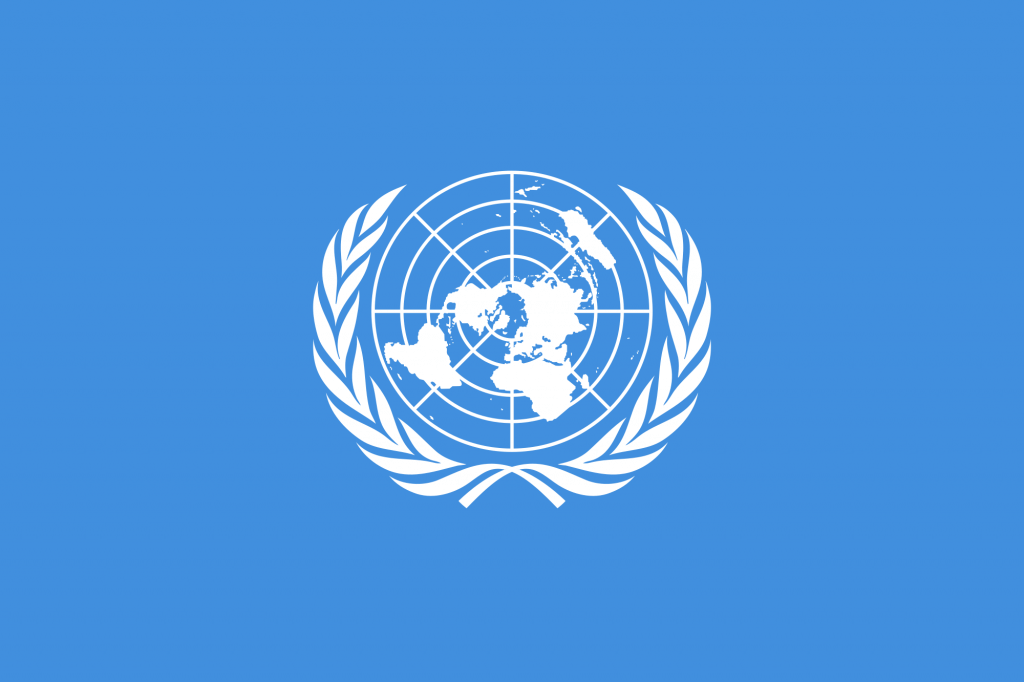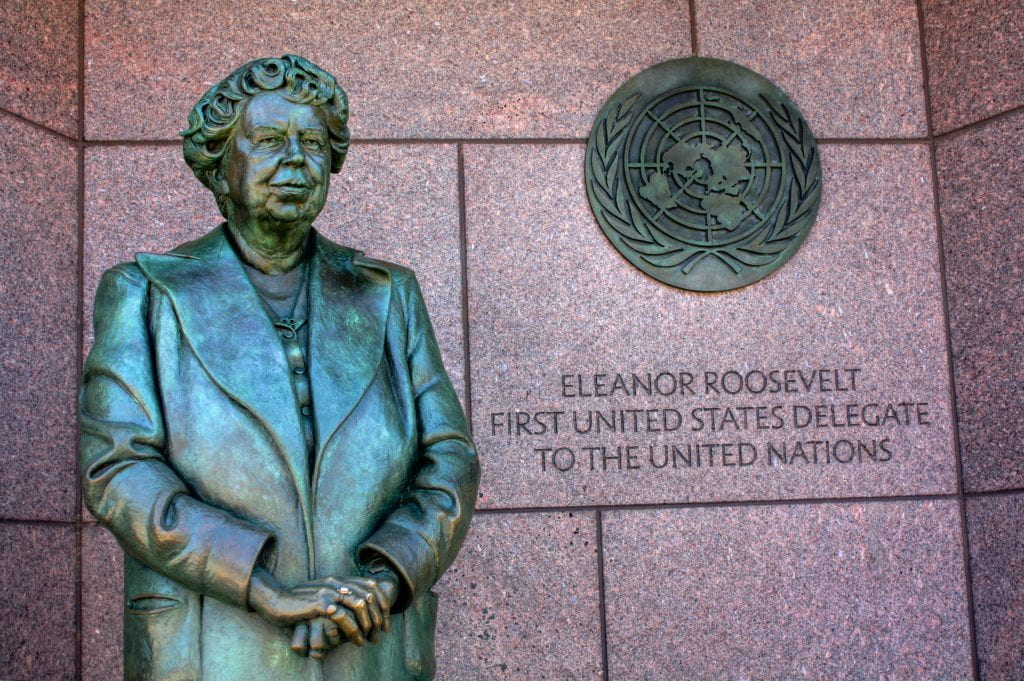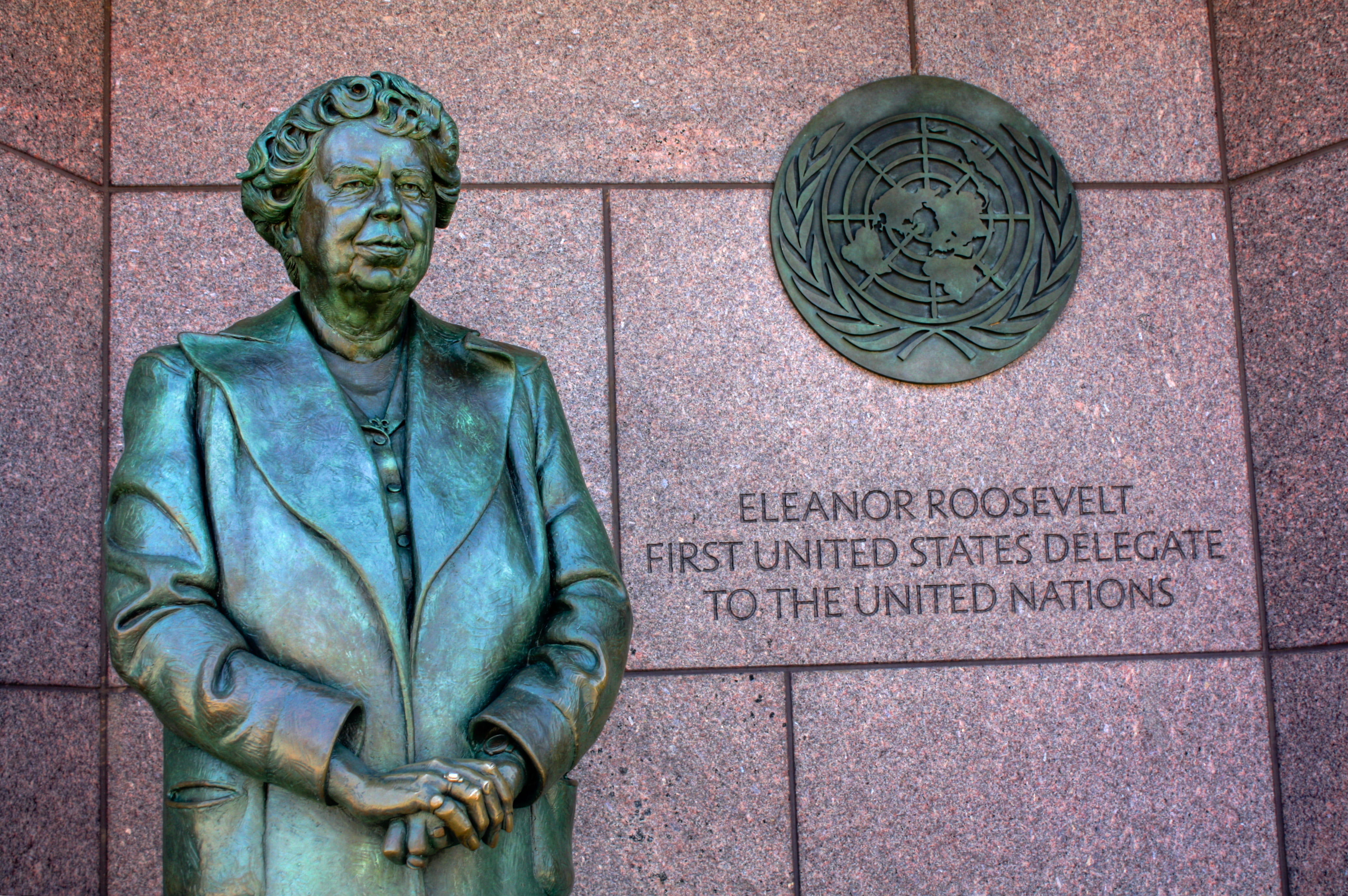
The conception of the Universal Declaration of Human Rights (UDHR) gave birth to human rights as they are known today. Adopted by the United Nations (UN) General Assembly on December 10, 1948, the UDHR was a response to the atrocities that took place during World War II. As half the globe laid in ruin and millions of lives were taken, a dormant side of humanity seemed to reawaken within the world powers, and an international prioritization of human rights emerged. The UDHR, comprised of 30 Articles defining human rights, was an expression of humanity’s resurgence, as well as an international commitment to never allow such monstrous acts to take place again.
Those tasked with composing the UDHR were members of the Commission on Human Rights, chaired by the dynamic Eleanor Roosevelt, who served as First Lady of the United States from 1933 to 1945. Roosevelt transformed the role of the First Lady by using her position as a platform for social activism in women’s rights, African-American rights, and Depression-era workers’ rights. After her husband, President Franklin D. Roosevelt, died in 1945, she was appointed to be the US Delegate to the UN and served in this role for 7 years. It was her experience and passion for social activism that prepared the widow Roosevelt to Chair the commission responsible for creating the UDHR. Roosevelt asserted the Declaration would reflect more than Western ideas; to accomplish this, the Human Rights Commission was made up of members from various cultural and legal backgrounds from all around the world, showing respect for differing cultures and their customs while also ensuring each region had a hand in creating the document. Under Roosevelt’s leadership, the diverse commission was able to craft the UDHR in a unique and culturally-competent way.

The UDHR was the first document in history to explicitly define what individual rights are and how they must be protected. The Preamble of the document outlines the rights of all human beings:
Whereas recognition of the inherent dignity and of the equal and inalienable rights of all members of the human family is the foundation of freedom, justice and peace in the world,
Whereas disregard and contempt for human rights have resulted in barbarous acts which have outraged the conscience of mankind, and the advent of a world in which human beings shall enjoy freedom of speech and belief and freedom from fear and want has been proclaimed as the highest aspiration of the common people…
Thus, for the first time in history, human rights were assembled and codified into a single document. The Member States, or sovereign states that are members of the United Nations, came together in agreement to protect and promote these rights. As consequence, the rights have shaped constitutional laws and democratic norms around the world, such as the Human Rights Act of 1998 in Britain and the Civil Rights Act of 1964 in the United States.

The Commission on Human Rights defined human rights with the conception of the UDHR. By fusing dignity, fairness, equality, respect, and independence, the UN defines human rights as:
rights inherent to all human beings, regardless of race, sex, nationality, ethnicity, language, religion, or any other status. Human rights include the right to life and liberty, freedom from slavery and torture, freedom of opinion and expression, the right to work and education, and many more. Everyone is entitled to these rights, without discrimination.
Human rights are the cross-cutting theme within every UN agency. They have inspired the UN’s Sustainable Development Goals (SDGs), which are goals to “provide peace and prosperity for people and the planet, now and into the future.” These planet-, urbanization-, and group-focused goals substantially contribute to the realization of human rights, as the human rights-based approach to development stipulates development is conducive to the promotion of human rights. In the ideal sense, human rights are a guiding force toward living in global harmony, and through the promotion of the basic rights bestowed by the UDHR, the world has made strides toward achieving that harmony.

